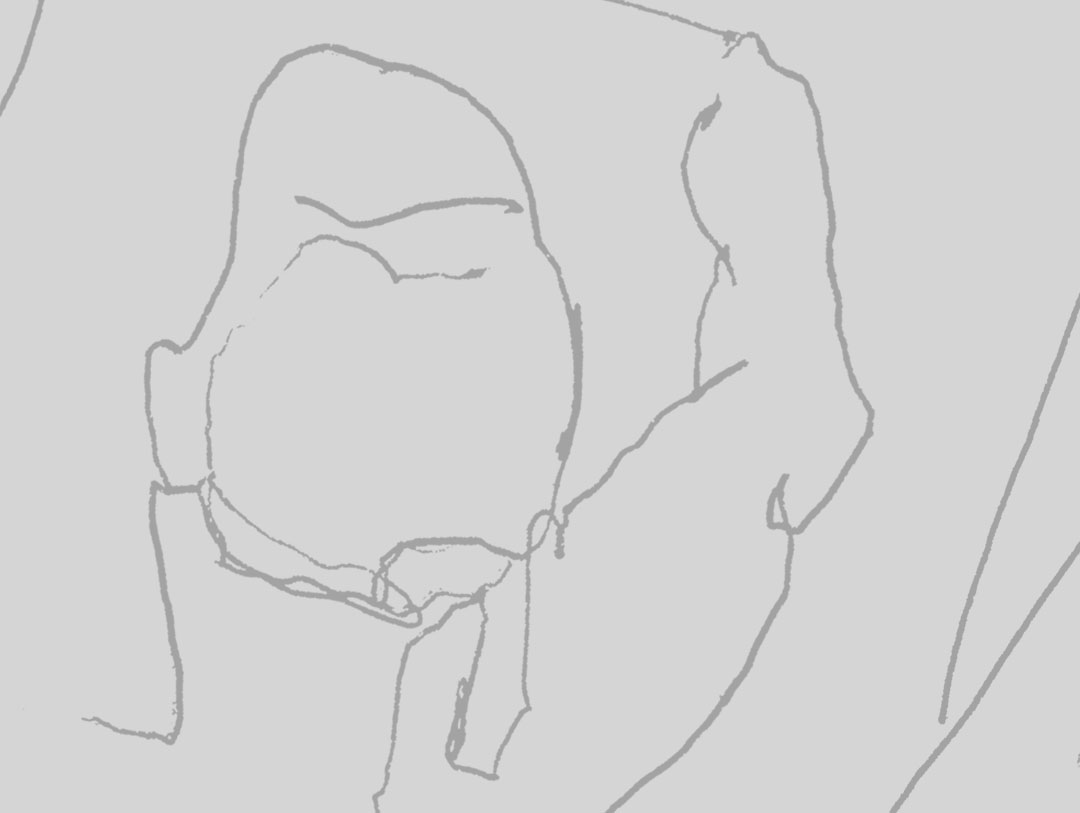THE CRISIS, THE ABSURD
AND THE DEMOCRACY
E S S A Y
“The crisis consists precisely in the fact that the old is dying and the new cannot be born,” Italian writer Antonio Gramsci stated. This is an appropriate description of our current emotional state. Our doors are now closed for an indefinite period of time; patiently and in great silence and darkness, our unique eigensinnig pieces are hanging on the rails. Between old, thick walls and below the high vault.
And we, Stefanie and Toni, are also confined to our own four walls. While Toni devotes himself to philosophy, writes down his thoughts on the current situation, contemplates the future and practices panicked serenity and skeptical cheerfulness, Stefanie has set up a substitute workshop at home. Within the confines of her apartment and in a state oscillating between confidence and doubt, she tries to develop a creative routine and come up with new eigensinnig creations, without knowing whether they will ever see the light of day.
“One crisis stimulates creativity, many crises destroy it,” German immunologist Gerhard Uhlenbruck said – and we are wondering where we are standing now. The crisis pervades all areas of life, it can be felt everywhere and all the time. Not being able to know is the current state of things, and a certain absurdity is in the air. So much time, so few plans, the future is shrouded in fog and the atmosphere condensed. Neither heads nor hands can grasp what is happening. The heads cannot comprehend it because there are so many unknown factors buzzing around in the air, and the hands cannot grasp others and shake them as a greeting, and they constantly have to wash themselves.
Willingly do what we want and willingly suffer what we must.
ARTHUR SCHOPENHAUER
ONE MUST IMAGINE SISYPHUS HAPPY
“The absurd has meaning only in so far as it is not agreed to,” Albert Camus wrote in The Myth of Sisyphus. Sisyphus as an allegory for a human being whose life does not have any meaning imposed by outside sources, who has to live in a meaningless, absurd world – that is the existentialists’ worldview. If human beings see this absurdity and become aware of the meaninglessness, they rise above it and surmount themselves. There is great freedom in this rising-above, this self-surmounting.
They do not let absurdity overwhelm them. They perceive it and take it for granted, but they are larger, they can shape their own fate, be active, revolt. Accepting a fact and revolting against it are not mutually exclusive. Both can take place at the same time – and turn passive sufferers into active endurers.
“One must imagine Sisyphus happy,” Camus concludes. Even Arthur Schopenhauer, who did not exactly go down in history as a philosopher of happiness, wrote that we should willingly do what we want and willingly suffer what we must.
Our day-to-day life also feels like a silent revolt against the absurd. We continue to roll our eigensinnig rock up the hill, perhaps a little more slowly and with more sideways glances. René Descartes’ “I think, therefore I am” becomes “I notice that there are others, too.” And because there are other people who deserve to be protected, we stay at home and accept being left to our own devices.
Professor Adorno, two weeks ago, the world still seemed in order...
- Not to me.

THE VISIBLE AND THE INVISIBLE
“We seldom think of what we have but always of what we lack,” Schopenhauer also said. All of a sudden, we are aware of the freedom we always took for granted – because of its absence. Those who keep the system running, previously hidden behind the scenes, are standing in the spotlight of the crisis, leaving those who used to push to the front behind the curtains. In the same way as previously invisible things and people in our society are now coming into view, it has always been our intention to make people’s own personalities visible.
Something that was still a matter of course in February isn’t anymore. “Professor Adorno, two weeks ago, the world still seemed in order...” – “Not to me,” Theodor Adorno replied in the famous Spiegel interview in 1969.
All human beings have a natural right to life, liberty, and property.
JOHN LOCKE
DEMOCRACY IN CRISIS
The world is even more chaotic than usually. Affluent western society is collapsing like a cushion filled with air that somebody has pierced with a needle. We relinquish several fundamental rights for an indefinite period, more or less voluntarily. The federal government decided to close stores, cafés and restaurants and thus interfered with people’s fundamental rights guaranteed by constitutional law, such as the freedom of assembly or the freedom to carry on a business.
To John Stuart Mill, philosopher and pioneer of liberalism, being able to freely develop one’s own personality and live an autonomous life, free from political and societal constraints, is the greatest priority in a democracy that is not in a state of emergency. In his opinion, only certain circumstances justify for rulers to suspend this right: “That principle is, that the sole end for which mankind are warranted, individually or collectively, in interfering with the liberty of action of any of their number, is self-protection. That the only purpose for which power can be rightfully exercised over any member of a civilised community, against his will, is to prevent harm to others,” Mill wrote 150 years ago in his work On Liberty.

John Locke, philosopher of the Enlightenment, also discussed the principles of a democracy – separation of powers, sovereignty of the people and protection of private property. He wrote, “All human beings have a natural right to life, liberty, and property.” They have the right to “the enjoyment of their properties in peace and safety,” assured by the laws passed for this purpose. If laws (legitimately) restrict these liberties, citizens have the right to resistance against the governing bodies.
We all accept these cuts and restrictions, because we know that there are other people. Nevertheless: Even if the measures are right, they have to remain temporary.
In a democracy, radical and far-reaching restrictions like these have to be offset by appropriate compensations regulated by law. Citizens must not be reduced to the level of supplicants. In times like these, it is important not to become blindly following sheep. We must keep questioning. We must remain skeptical. Let’s remain awake and open, let’s keep thinking. And: Let’s stay at home.
MORE ESSAYS, PENSÉES AND IMPRESSIONS

PENSÉES: DECONSTRUCTION
It is only when the existing order is questioned that something new can emerge. It is only by treading untrodden paths that one reaches new places. It is only by disassembling something that the structures of systems can be rendered visible which are otherwise taken for granted and perceived as natural.

PENSÉES: TROUBLEMAKERS
A philosophy about troublemakers: about egocentrics, self-dramatizing eccentrics, destroyers and also heroes and heroines on the thresholds of an order which they shake. Also about borders of a system that should have been questioned a long time ago.

AN IN-BETWEEN TIME
Last autumn, when we were working on our program for the spring 2020, inspired by chaos theory, we certainly did not think of the current situation. The fact that “the flap of a butterfly’s wings can set off a tornado on the other side of the world” has been clearly demonstrated to us now by the corona virus.



